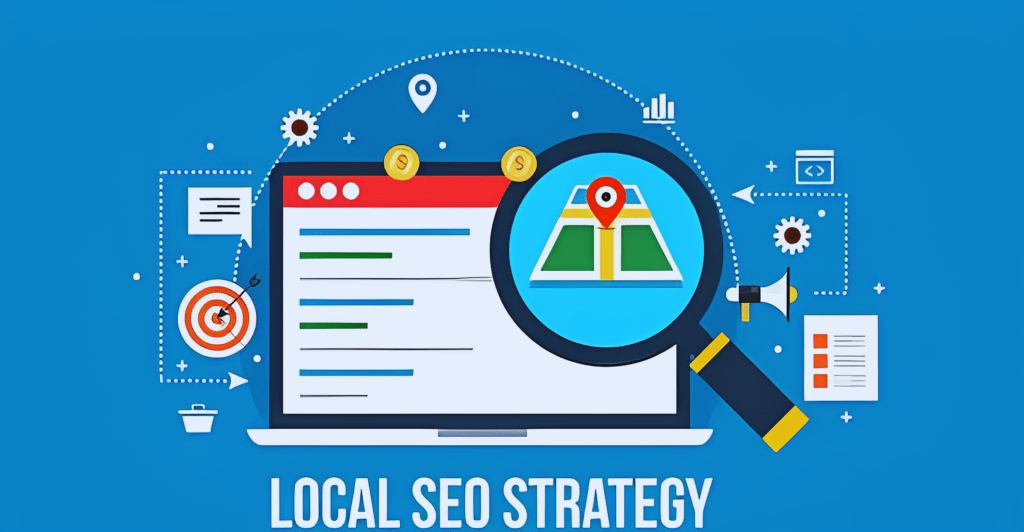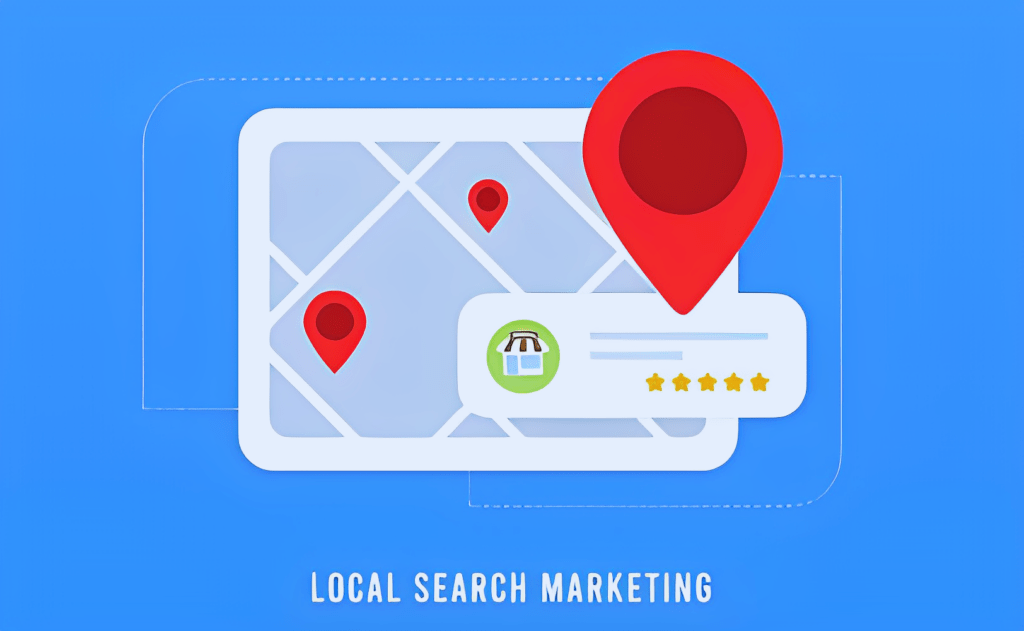Unlocking Local Success: A Guide to Skilled Local SEO Strategies.
Local SEO is a type of search engine optimization (SEO) that makes your company more noticeable in Google’s local search results. Any business that serves a particular region or works locally may benefit from local SEO Strategies.
A local company caters to customers in its town, city, or other designated region with its goods and services. Since the barber would only serve people in that neighbourhood, a one-person shop serving exclusively as a local business would be an example.
Crawlers, ensuring websites are visible and technically sound.
In addition to my technical insight, I keep up with the most recent developments in algorithms and industry trends. This allows me to adapt strategies dynamically, keeping clients ahead of the curve and safeguarding their online visibility in an ever-changing digital landscape.
Establishing and maintaining citations on pertinent local directories, sector-specific websites, and review platforms are all part of local SEO. The name, address, and phone number (NAP) of the company are included in these citations, which aids search engines in verifying the location of your company and enhancing its visibility in local results.
Establishing and maintaining citations on pertinent local directories, sector-specific websites, and review platforms are all part of local SEO. The name, address, and phone number (NAP) of the company are included in these citations, which aids search engines in verifying the location of your company and enhancing its visibility in local results.
Of all Google queries, are 46% local?
Local businesses are the focus of 46% of Google searches.
People use Google to locate nearby businesses. You’re losing out on local traffic if you don’t have a local SEO plan on Google. By investing in a local SEO strategy that aids in lead capture, you have the opportunity to get more valuable leads.
The Local SEO Checklist?
Google My Business:
You may control how your company appears on Google Maps and Search using a free service called Your Business Profile. You can communicate with clients, share updates, list your goods and services, take online orders, and do much more with your Business Profile.
Schema markup:
Product Schema Markup optimizes your store’s and its products’ search engine results page (SERP) appearance. These improvements—previously referred to as rich snippets but now dubbed rich results—can include star ratings, reviews, availability, pricing, and other features.
Mobile usability:
“Mobile usability” refers to how easy it is to utilize internet services on tablets or smartphones.
Consistent NAP:
NAP is an abbreviation for Name, Address, and Phone number. Because Google prioritizes accurate information for its consumers, your business’s NAP must be accurate and consistent when you optimize your website and online appearance for local search.
Keyword optimization:
Keywords with location-specific phrases that produce results about the same area are known as local keywords. These keywords are essential for enhancing your local search engine optimization (SEO) strategy and drawing local customers to your establishment.
Local SEO ranking factors:
The particular elements marketers concentrate on to help businesses rank higher in search results are local SEO ranking criteria. It’s basically what search engines like Google use when choosing which companies to feature in prominent listings, such as the local pack (or three pack).
Important directories for citation:
SEO citations make it easier for customers in a particular area to locate companies that provide the goods and services they’re looking for. They also influence your SEO rankings on Google and other search engines. Here’s a closer look at the operation of each of those items.
Location:
The practice of improving your online presence to boost local traffic, exposure, and brand awareness is known as local SEO. Among the frequent local SEO responsibilities is profile optimization on Google. Locating local keywords.
Testimonials:
Positive client testimonials are a great approach to boosting your SEO position through testimonial link development. Its objective is spreading the word of mouth while exchanging links and boosting online brand recognition.
Clean URLs:
A clean URL lacks query strings and parameters and is simple to understand. If you publish the second example on your blog or your Twitter or Facebook page, it will get more clicks since it looks cleaner and more professional.
Local Business Competitor:
Local firms that provide comparable goods or services are your competition. Start by conducting a few localized Google searches for the main services or goods offered by your company in your area or city, and note who comes up. While conducting a thorough competition analysis, businesses should consider several factors, including price, delivery and distribution techniques, market share, new goods or services, highest-spending clients, the calibre of after-sales assistance, and the sales and marketing channels employed.
Spy on the competition:
Identify Your Competitors
Create Competitor Profiles
Competitors’ Product, Pricing, Place, and Promotional Strategies.
Evaluate Competitor Marketing Strategies.
Analyze Marketing Channels.
Identify Your Strengths, Weaknesses, Opportunities, and Threats.
Track and Monitor Results.
By leveraging these strategies, local SEO specialists help businesses attract more local customers, increase foot traffic, and boost overall revenue. Their expertise lies in understanding the nuances of local search algorithms and adapting their strategies to the ever-changing digital landscape.


